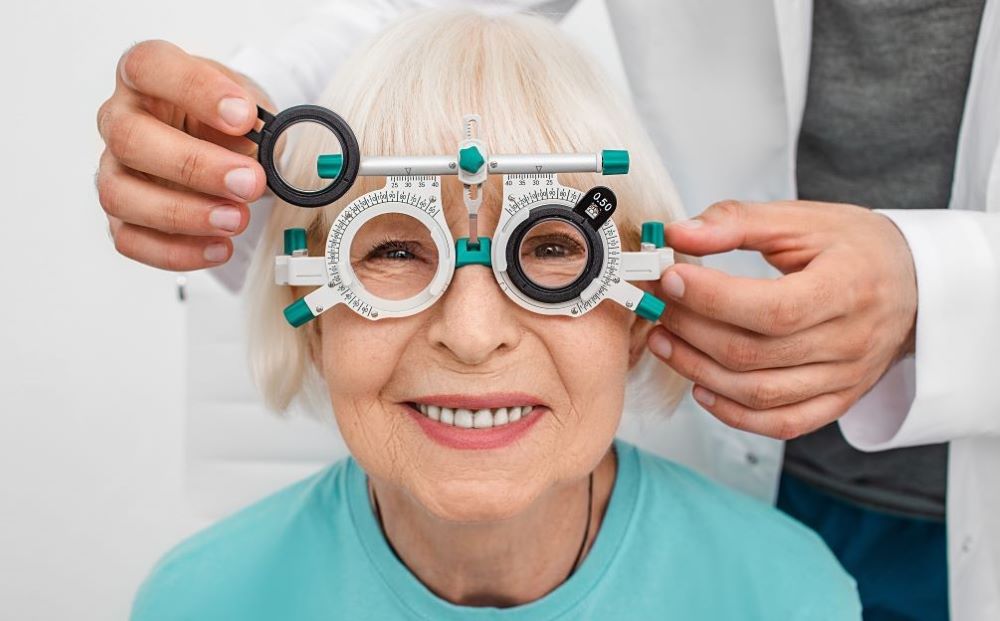We asked Dr. Kathy Ong, an optometrist at On Lok PACE, for her advice on daily eye care and health.
What is the most common eye problem among your older patients?
Dry eye is a common condition among older adults. It can occur when you don’t produce enough tears to keep the eyes properly lubricated or if the composition of your tears has deteriorated due to health conditions or the natural aging process.
Also, as we grow older, the oil glands along the eyelashes can become more easily clogged with dirt or the natural secretions of the eye, resulting in inflammation and irritation. You might wake up in the morning with very oily, matted, or crusty lashes. In that case, we recommend cleaning around the eyelids, eyelashes, and eyebrows to open the pores.
Put a few drops of baby shampoo in a cup of warm water. Dip a cotton ball, cotton swab, or soft washcloth in the solution. Then, with your eyes closed, gently wipe back and forth across each eyelid and the lashes. Rinse off gently with warm water and pat dry.
If you are taking a bath or shower, run warm water over your closed eyes. Then put a few drops of baby shampoo on a soft washcloth and gently scrub the lids and lashes. You can also place a warm, wet washcloth over your eyes to loosen matted lashes.
If your eyes are dry, applying artificial tears or lubricating drops may provide relief. Older adults who are taking medication for glaucoma should keep using their drops as prescribed. Talk to your healthcare provider for assistance.
What can we do to improve eye health and protect our vision as we grow older?
Prevention starts with a diet rich in green, leafy vegetables. Carrots, kale, and broccoli are packed with vitamin A and other nutrients that may protect eyes and reduce the risk of age-related changes. A healthy diet can also help prevent and manage high blood pressure, heart disease, and diabetes, which can all damage the eyes. Exercise plays an important role because it promotes blood circulation and oxygen intake, both important for eye health, while reducing the risk of developing these conditions.
I advise my patients to take care of eyeglasses so that they are always clean and handy. Store them in their case when you go to sleep and keep them within reach by your bed. Clean eyeglasses with soap and water or with a spray cleaner and a soft microfiber cloth to prevent scratching the lenses.
On Lok PACE participants receive a comprehensive annual eye exam. In between these checkups, they should notify their healthcare provider of any vision changes, such as blurriness, floaters, or flashes of light—anything out of the ordinary.
Why did you decide to become an optometrist?
My dad was an optometrist, and every Saturday I would go to his office and watch him work. I love to help people see better; it makes a tremendous difference in their quality of life. It’s an instantaneous improvement and gratification for me.
I have been at On Lok since 2008, and I serve participants at different centers. I love to connect with the older adults in my care and hear the stories of their lives.
Source: Dr. Kathy Ong, Optometrist Additional source: American Academy of Ophthalmology
